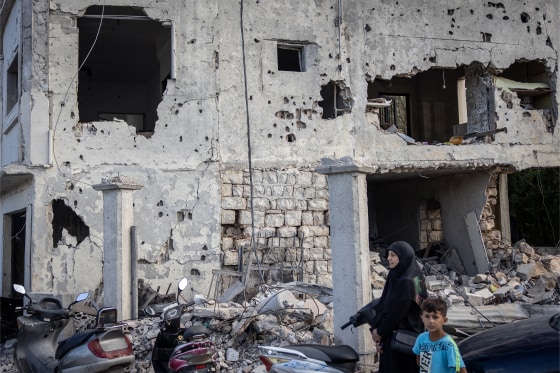
The escalation in hostilities comes amid ongoing clashes along the Israel-Lebanon border, a region that has seen sporadic violence in recent years. The situation took a turn for the worse over the weekend when intelligence reports suggested that Hezbollah was planning to launch rockets into northern Israel. In response, the IDF targeted several positions in southern Lebanon believed to be used by Hezbollah for launching attacks.
Israeli officials have maintained that the airstrikes were a preemptive measure to ensure the safety of its citizens. "Our actions were taken to neutralize a clear and present danger posed by Hezbollah militants," Hagari stated. He emphasized that the IDF's primary objective was to prevent any loss of life on the Israeli side, underscoring the ongoing threat that Hezbollah poses to the region's stability.
The strikes have further strained the already fragile relations between Israel and Lebanon, with Lebanese officials condemning the action as a violation of their sovereignty. Lebanon's government has called for international intervention, urging the United Nations to hold Israel accountable for what it describes as an unprovoked attack. The Lebanese military has been placed on high alert, with reinforcements deployed to the southern border in anticipation of further escalations.
Hezbollah, for its part, has yet to officially respond to the strikes, but the group has historically vowed retaliation against any Israeli aggression. The organization's leader, Hassan Nasrallah, has previously warned that any attack on Lebanese soil would be met with a "decisive" response. This raises concerns about a potential full-scale conflict, which could have devastating consequences for the region.
The international community has reacted with alarm to the developments, with calls for both sides to exercise restraint. The United States and European Union have urged Israel and Lebanon to avoid further escalation, stressing the importance of dialogue and diplomacy in resolving their differences. However, with tensions running high, there are fears that the situation could spiral out of control.
The border between Israel and Lebanon has been a flashpoint for conflict for decades, with Hezbollah emerging as a powerful adversary to Israel since the 1980s. The group, which is backed by Iran, has amassed significant military capabilities over the years, including a vast arsenal of rockets and missiles. These capabilities have made Hezbollah a formidable threat to Israel's northern regions, and the group has been involved in several conflicts with Israel, most notably the 2006 Lebanon War.
In recent years, the border region has seen an increase in smaller-scale skirmishes, often triggered by cross-border attacks or Israeli strikes on Hezbollah targets in Syria. The situation remains volatile, with both sides engaging in a dangerous game of brinkmanship that could erupt into a larger conflict at any moment.
The Israeli airstrikes into Lebanon mark the latest chapter in this ongoing saga, highlighting the precarious nature of the situation. While Israel has framed its actions as a necessary defense against an imminent threat, the broader implications of this military action cannot be ignored. The risk of further escalation looms large, with the potential to draw in other regional actors and destabilize the broader Middle East.
As the international community watches closely, the focus now shifts to whether diplomatic efforts can deescalate the situation or if the region is on the brink of another devastating conflict. The coming days will be critical in determining the future of Israel-Lebanon relations and the broader security landscape of the Middle East.
Topics
Live News
